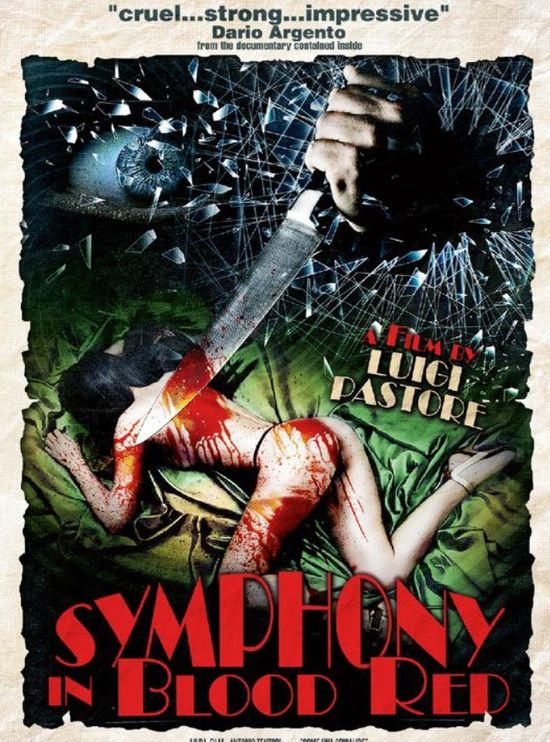Luigi Pastore seems to have wanted to make something along the lines of (the later) Sonno Profondo, with the film almost exclusively following the protagonist/killer, and almost exclusively aligned to his point-of-view. The killer films much of his activities-for no discernible reason, as he isn't seeking fame or posterity-and many scenes alternate between the killer's video footage, and reasonably conventionally-filmed, if poorly lit, shots of victims-to-be. There's minimal style on show, and Pastore lacks Luciano Onnetti's confidence to throw his lot in fully with the subjective angle.
Sonno Profondo also positions the audience as detective, offering a central mystery element which can be solved by paying attention to details within the film. Symphony contains no such mystery, instead relying on the quasi-mystery of which formative events have created the killer. These can be boiled down to a break-up, molestation from a priest and parental abandonment. Several of the victims do share a similar dark-haired (ie Italian) look, which evokes both the ex-girlfriend and mother characters, and the only character who escapes his clutches, an Italian girl with whom he's fallen in love, also matches this template, so Pastore's clearly been reading his Freud.
One of the murdered characters is the host of a TV show who announces to the world (/Italian cable viewers) that he wants to help the police catch the killer. We see him talking to his producers/assistants/researchers, demanding that they interview relatives and neighbours of the slain victims, emphasising the commercial possibilities presented by the serial killer's acts. He's then abducted and killed, filmed all the while by the killer's ubiquitous handicam. This presents Pastore with an opportunity to further develop the theme of the media exploitation of violence, but once the reporter is dispatched the whole strand is dropped.
One truly unusual aspect of the film is the two puppets who appear occasionally to comment on the action. It's not especially innovative (unless you haven't seen any Muppets), but it's pretty far out there in terms of what you'd expect from a (neo-)giallo. The scenes also provide welcome doses of humour in an otherwise turgid and self-important slog.
|
|
Some attempt at depth comes through the killer's persistent voice-over, which reveals the anguished soul behind the man. He talks about his compunction towards violence, then about how he's left that compunction behind, and also about how he's like a chrysalis (the Italian title translates as 'Like a Chrysalis'). He's not though, he's just a big mental with pretensions to grandeur. I shall resist the urge to describe anyone else, specifically anyone behind the camera, in those terms.
|

 RSS Feed
RSS Feed
